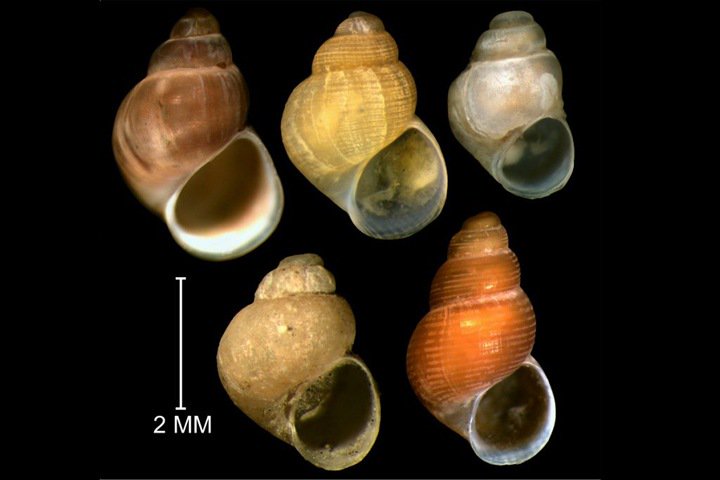
Adult females of tiny snails of the genus Boreocingula could grow underdeveloped male reproductive organs. It can be a reaction to the pollution of the Arctic seas.
Some species of mollusks are hermaphroditic: they have both male and female genitals, but sometimes mollusks can change their sex throughout life. As an extremely rare anomaly, however, a mollusc can develop sexual characteristics of another sex.
According to a recent research, it happened with sexually mature females of the Boreocingula martyni mollusk: a small rudimentary penis was found in all snails. Specialists collected samples of this species in Rogers Bay on Wrangel Island and Pevek Bay in Chukotka. These territories are polluted by organotin compounds, harmful substances that were previously used in paints to protect ship hulls against fouling. In 2008, an international convention came into force prohibiting anti-fouling systems with organotin compounds. Studies have shown a correlation between the number of mollusk pseudohermaphrodites and their habitat’s concentration of organotin compounds.
‘This allows us to suggest a hypothesis that the B. martyni micro mollusks can be used for bioindication of marine pollution,’ said Ivan Nekhaev, a biologist from St Petersburg University. ‘The fact is that at present, it is cheaper to gather a few dozen snails and open them than to analyze water samples. Such work can be carried out, for example, at specially equipped stations near the coast. It will also become necessary to have a stereomicroscope and a specially trained person. Moreover, the distribution density of micro mollusks is much higher than that of larger organisms. So, they are easier to be found.’
Photo credit: St. Petersburg State University.